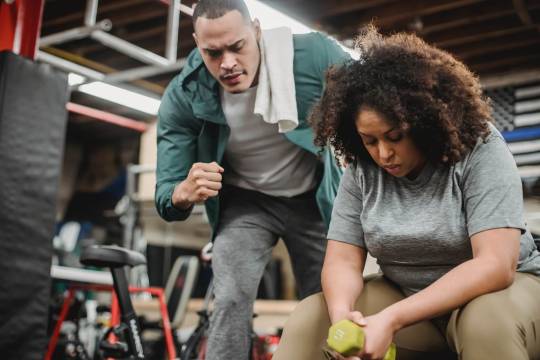#musclemass
Photo




HUNGARIAN IFBB PRO BODYBUILDER LASZLO KIRALY
See more: https://musclelovergr.blogspot.com/2023/05/kiraly2.html
Muscle Lover - Social Media
►Facebook: https://www.facebook.com/bigmusclelover
►Instagram: https://www.instagram.com/musclelovergr
►Twitter: https://twitter.com/musclelovergr
►Viber Channel: https://invite.viber.com/?g2=AQAfoJH1UU9vylAA3As4JihLsK%2Fq4uLK0HBBRowIuDhxJBHAhMs4wAus3GriE9cd
#musclelovergr#bodybuilding#bodybuilder#bodybuildinglifestyle#bodybuildinglife#bodybuildingmotivation#fitness#gymlife#muscle#muscular#musclemass#musclebeast#muscleman#giant#musclemania#muscleworship#powerhouse#Laszlo Kiraly#IFBB
436 notes
·
View notes
Text

@musclejoe
#musclejoe
#muscle#muscleworship#musclegrowth#pecs#flex#bicep flex#bicep#muscles#huge#muscle worship#musclemass#muscle flex#pec flex
20 notes
·
View notes
Text

#GiantBasketballPlayer#MuscleMass#SizeComparison#DominantStature#UrbanGiants#MuscleDominance#ToweringAthlete#StrengthShowcase#HeightDifference#MuscleAndSuit#GiantAndGentleman#AthleticGiant#PhysicalSuperiority#MuscularGiant#PowerfulPresence#StatureContrast#BigManOnCampus#HeightenedDominance#CityOfGiants#BasketballBehemoth
22 notes
·
View notes
Photo

Muscl swim trunks ✅Free shipping 🔗In Bio Follow @theallrj for more #workoutclothes #musclebeard #musclecub #muscleandhealth #musclemass #gymrat #muscles #muscle #musclebuilding #musclegain #musclemodel #hunk #beach #muscleandfitness #muscleman #musclegains #bodybuilding #bodybuildingnation #bodybuildingcom #bodybuildinglife #bodybuildingmotivation #bodybuildinginspiration #bodybuildingaddict https://www.instagram.com/p/CoqTX49OQAP/?igshid=NGJjMDIxMWI=
#workoutclothes#musclebeard#musclecub#muscleandhealth#musclemass#gymrat#muscles#muscle#musclebuilding#musclegain#musclemodel#hunk#beach#muscleandfitness#muscleman#musclegains#bodybuilding#bodybuildingnation#bodybuildingcom#bodybuildinglife#bodybuildingmotivation#bodybuildinginspiration#bodybuildingaddict
3 notes
·
View notes
Text
Why You're Not Seeing Results: Understanding the Causes of Slow Weight Loss

Weight loss can be a challenging and frustrating process for many people. There are a variety of factors that can contribute to slow weight loss, and it's important to understand what might be causing your particular struggle in order to address it effectively.
One common cause of slow weight loss is a calorie imbalance. This can happen if you are consuming more calories than you are burning through exercise and daily activities. To lose weight, you need to create a calorie deficit by burning more calories than you take in. If you're not seeing results, it could be because you're not accurately tracking your food intake or overestimating how many calories you're burning through exercise.
How To Accurately Track Your Food Intake
Tracking your food intake is a crucial step in achieving weight loss because it allows you to monitor your calorie intake and ensure that you are creating a calorie deficit. Here are some tips for accurately tracking your food intake:
- Use a food diary or mobile app: Keeping a food diary or using a mobile app like MyFitnessPal, can help you track what you're eating, when you're eating it, and how many calories you're consuming. This will give you a clear picture of your eating habits and make it easier to identify any areas where you may need to make changes.
- Measure your food: Using measuring cups, spoons, or a food scale can help ensure that you're accurately tracking the amount of food you're consuming. This is particularly important when you're eating foods that are high in calories like nuts, oils, and avocado.
- Be honest with yourself: It's important to be honest with yourself when tracking your food intake. Don't leave out any snacks or cheat meals, as this will skew your results and make it harder to achieve your weight loss goals.
- Track nutrient intake: Along with calorie tracking, it's important to track your nutrient intake as well. Keep an eye on your macronutrient intake, such as protein, carbohydrates, and fats, and micronutrient intake like vitamins, minerals and fiber.
- Plan ahead: To make tracking your food intake easier, plan your meals and snacks in advance. This will help you to avoid impulse eating and ensure that you're consuming healthy, nutrient-dense foods.
- Get an expert's help: Consulting a registered dietitian or a nutritionist can be beneficial in tracking your food intake accurately. They can assess your diet, suggest changes, and provide guidance on how to make sure you are getting the right nutrients to support your weight loss goals.
Another potential cause of slow weight loss is a lack of muscle mass. Muscle tissue burns more calories at rest than fat tissue does, so the more muscle you have, the more calories you'll burn throughout the day. If you're not engaging in strength training exercises to build muscle, your weight loss may be slowed.
How To Maintain Muscle Mass While Losing Weight
Maintaining muscle mass while losing weight is important because muscle tissue burns more calories at rest than fat tissue does. This means that the more muscle you have, the more calories you'll burn throughout the day, even when you're not actively exercising. Here are some tips for maintaining muscle mass while losing weight:
- Strength training: Strength training exercises such as weightlifting, resistance band exercises, and bodyweight exercises are crucial for building and maintaining muscle mass. Aim to strength train at least two to three times a week, focusing on all major muscle groups.
- Progressive overload: To continue building muscle, you need to challenge your muscles with increasing resistance. This is known as progressive overload, and it can be achieved by increasing the weight, reps, or sets of your exercises.
- Adequate protein intake: Protein is crucial for muscle recovery and growth, so it's important to make sure you're consuming enough protein to support muscle growth and maintenance. Aim to consume at least 0.8 grams of protein per pound of body weight per day.
- Don't cut calories too low: When trying to lose weight, it's important to create a calorie deficit, but cutting calories too low can lead to muscle loss. Make sure you're not consuming too few calories, or you risk losing muscle mass along with fat.
- Avoid crash diets: Crash diets that involve drastic and rapid weight loss are not sustainable and can lead to muscle loss. Instead, aim for slow and steady weight loss through a healthy, balanced diet and regular exercise.
- Prioritize compound exercises: Compound exercises, such as squats, deadlifts, and bench press, are exercises that work multiple muscle groups at once and are great for building muscle mass.
- Rest and recovery: Adequate rest and recovery are essential for muscle growth and repair. Make sure to get enough sleep and allow your muscles to recover between strength training sessions.
Hormonal imbalances can also play a role in slow weight loss. For example, low levels of thyroid hormone can slow down your metabolism, making it harder to lose weight. Certain medical conditions such as Polycystic Ovary Syndrome (PCOS) can also affect your hormones and make it more difficult to lose weight.
Stress can also contribute to slow weight loss. When you're under a lot of stress, your body releases the hormone cortisol, which can cause weight gain, particularly in the abdominal area. Stress can also lead to emotional eating, which can cause you to consume more calories than you need.
Minimizing Stress Level Is Important When You’re Trying To Lose Weight
Minimizing stress can help you achieve weight loss by reducing your cortisol levels (stress hormone) and preventing emotional eating. Here are some ways to minimize stress in order to lose weight:
- Practice mindfulness techniques: Mindfulness techniques such as meditation, yoga, and deep breathing can help reduce stress and promote relaxation. Practicing mindfulness techniques on a regular basis can help you manage stress more effectively.
- Exercise regularly: Exercise is not only beneficial for weight loss but also for managing stress. Exercise releases endorphins which are often referred to as "feel-good hormones" that can promote feelings of happiness and well-being.
- Prioritize self-care: Make time for activities that you enjoy and that make you feel good. Whether it's reading a book, taking a bath, or practicing a hobby, taking care of yourself can help reduce stress and promote relaxation.
- Connect with others: Social support is important for managing stress. Connecting with friends and family, joining a support group, or seeking help from a therapist can all help reduce stress.
- Learn to manage time: Often, stress can come from feeling overwhelmed by the demands of daily life. By learning to manage your time more effectively, you can reduce stress and feel more in control of your life.
- Practice stress-reducing techniques: There are a variety of stress-reducing techniques such as Progressive muscle relaxation, aromatherapy, and journaling that can be effective in reducing stress.
- Avoid triggers: Identify the situations or things that trigger your stress and try to avoid them as much as possible.
Another factor that can contribute to slow weight loss is lack of sleep. Lack of sleep can negatively impact weight loss in several ways, one of which is through its effect on hormones. When you don't get enough sleep, your body releases the hormone ghrelin, which stimulates appetite, and decreases the hormone leptin, which suppresses appetite. This can cause you to feel hungrier and make it harder to control your food intake, leading to overeating and weight gain.
Here are some ways in which lack of sleep can affect hormones and impede weight loss:
- Ghrelin and Leptin: Ghrelin and Leptin are two hormones that regulate appetite and energy balance. Ghrelin is known as the "hunger hormone" and it stimulates appetite, while Leptin is known as the "satiety hormone" and it suppresses appetite. When you don't get enough sleep, your body releases more ghrelin and less leptin, which can cause you to feel hungrier and make it harder to control your food intake.
- Cortisol: Cortisol is a stress hormone that can cause weight gain, particularly in the abdominal area. Lack of sleep can increase cortisol levels, making it harder to lose weight.
- Insulin: Insulin is a hormone that regulates blood sugar levels. Lack of sleep can disrupt insulin sensitivity, making it harder for your body to use insulin effectively. This can lead to weight gain and increase the risk of type 2 diabetes.
- Testosterone: Testosterone is an anabolic hormone that plays a role in muscle growth and metabolism. Lack of sleep can decrease testosterone levels, making it harder to build muscle and burn fat.
- Human Growth Hormone: Human growth hormone is responsible for muscle growth and metabolism. Sleep plays a crucial role in the production of this hormone and lack of sleep can decrease its production leading to muscle loss and slow metabolism.
Lastly, genetics also play a role in weight loss. Some people may have a harder time losing weight due to their genetic makeup.
In conclusion, slow weight loss can be caused by a variety of factors including calorie imbalance, lack of muscle mass, hormonal imbalances, stress, lack of sleep and genetics. It's important to identify the specific causes of your slow weight loss in order to address them effectively.
If you're struggling with slow weight loss, it's important to speak with a healthcare provider or a registered dietitian to help you determine the underlying cause and develop a personalized plan to help you reach your weight loss goals. It's also important to remember that weight loss is not a linear process and it will take time to see changes. Be patient with yourself and don't get discouraged.
Read the full article
#Appetiteregulation#Calorietracking#Exercise#Hormones#Metabolism#Musclemass#Nutrition#Sleep#Stressmanagement#Weightloss
2 notes
·
View notes
Photo

Landmine Crossovers 20lbs 3s x 12r #mcm #chestpump #chestworkout #chestday #workoutoftheday #workoutmotivation #fitnessmotivation #fitness #musclegain #musclemass https://www.instagram.com/p/CguOp8errgU/?igshid=NGJjMDIxMWI=
#mcm#chestpump#chestworkout#chestday#workoutoftheday#workoutmotivation#fitnessmotivation#fitness#musclegain#musclemass
3 notes
·
View notes
Link
You are wrong if you think that, due to regular exercise in the gym, you can eat whatever and as much as you want. For more info, follow Corpus Aesthetics.
3 notes
·
View notes
Text

#MuscleDefinition#GymBuddies#HeightContrast#MuscularDominance#WorkoutIntensity#StrengthTraining#FitnessHierarchy#TallAndMighty#MuscleMass#ShortAndStrong#GymBeasts#DominantPhysique#BodyBuilding#HeightDifferenceGoals#PowerfulBiceps#AthleticExcellence#GymMotivation#FitnessDynamicDuo#MusclePride#SizeMatters#GymProgress#WorkoutDominance#FitnessPeak#StrengthDuo#PowerliftingPros#FitnessRoleModels#GymInspiration#BodyGoals#HeightenedFitness#MuscleShowoff
10 notes
·
View notes
Photo



Northern Greece Cup 2022 - Highlights
See more: https://greekbodybuilders.blogspot.com/2022/05/posd2022.html
Greek Bodybuilders - Social Media
►Facebook: https://www.facebook.com/greekbodies
►Instagram: https://www.instagram.com/grbbuilders
►Twitter: https://twitter.com/greekbbuilders
#greekbodybuilding#greekbodybuilders#bodybuilding#bodybuilder#bodybuildingmotivation#bodybuildinglifestyle#bodybuildinglife#muscle#muscular#musclemass#muscleman#musclebeast#musclemania#muscleworship
5 notes
·
View notes
Text

Discover the Best Bluetooth Body Fat Scale for Accurate Body Composition Analysis
The popular smart scale for body weight, body fat scale bluetooth weighting health monitor is an accurate and reliable body composition analyzer that allows users to monitor their health and track progress conveniently. With its bluetooth feature, it enables seamless connection and data sharing with smartphones or tablets for in-depth analysis and goal tracking.
Discover the Best Bluetooth Body Fat Scale for Accurate Body Composition Analysis: This smart scale provides accurate measurements of body weight, body fat percentage, bmi, muscle mass, and other important metrics, making it a valuable tool for individuals seeking to improve their overall health and fitness. Stay on top of your wellness goals with this advanced and user-friendly smart scale.
#bodyfatscale#bluetoothscale#accuratebodycomposition#healthylifestyle#weightlossjourney#fitnessgoals#bodygoals#bodycompositionanalysis#smartweighing#bodyfatpercentage#musclemass#bodywaterpercentage#bonemass#visceralfat#bodymassindex#bodyfatmonitor#bodyfatmeasurement#bodyfattracker#bodyfatanalysis#bodyfatanalyzer#bodyfatscanning#bodyfatmeasurementtool#bodyfatscalepinterest
0 notes
Photo

😍 crush your workouts in Allrj Ella Tie Dye Seamless Gym Leggings ✅high quality ✅Free shipping Follow @theallrj for more #tyedie #girlswholift #muscleandhealth #musclemass #gymrat #muscles #muscle #musclebuilding #peachbooty #musclemodel #musclemommy #legday #lulu #musclechick #musclegains #bodybuilding #hot #leggings (at Los Angeles, California) https://www.instagram.com/p/CpyOgPAOeL3/?igshid=NGJjMDIxMWI=
#tyedie#girlswholift#muscleandhealth#musclemass#gymrat#muscles#muscle#musclebuilding#peachbooty#musclemodel#musclemommy#legday#lulu#musclechick#musclegains#bodybuilding#hot#leggings
5 notes
·
View notes
Text
Debunking Myths: Muscle Mass and Masturbation
There's a lot of curiosity and sometimes concern about how personal habits, like masturbation, might affect physical health, particularly in terms of muscle mass and workout efficacy. A common question that arises is, "Does masturbation cause weight loss?" or "Does it impact my gym results?" Let's delve into this topic to provide clarity based on scientific insights.
Masturbation and Muscle Mass: Is There a Connection?
Firstly, it's important to understand that masturbation is a natural and normal part of human behavior. The belief that masturbation can directly affect muscle mass or workout performance is largely unfounded. There's no scientific evidence to suggest that masturbating once or twice a week will have any negative impact on your muscle-building goals or your overall physical strength.
Hormonal Considerations
One of the reasons this question arises is due to concerns about testosterone levels. Testosterone plays a crucial role in muscle building and maintenance. However, the minor fluctuations in testosterone levels due to masturbation are not significant enough to impact muscle growth or workout performance in a noticeable way.
Energy Levels and Workout Performance
Regarding workout performance, the key factor is energy levels. Masturbation, like any physical activity, does expend a small amount of energy. However, this is not substantial enough to diminish workout performance. It's essential to ensure that you're well-rested and adequately nourished before any exercise session for optimal performance, regardless of other activities.
Masturbation and Weight Loss
As for the question, "Does masturbation cause weight loss?" it's important to note that while masturbation does burn calories, the amount is quite minimal. It's not significant enough to be considered a weight-loss strategy. A balanced diet and regular exercise remain the most effective methods for weight loss and maintaining a healthy physique.
Maintaining a balanced diet is key to managing weight effectively. When this is paired with regular exercise, it becomes an even more powerful tool in the journey towards weight loss. Additionally, the market offers various supplements that can support this process. One notable product is Vidaslim, designed to facilitate weight loss efficiently. Consuming just four scoops daily can help in shedding pounds while ensuring you don't miss out on essential nutrition. This approach is generally more effective and quicker for weight loss than relying on activities like masturbation, which has minimal impact on weight management
Psychological Effects
Masturbation can have several psychological benefits, such as stress relief and improved mood, which can indirectly contribute to better performance in the gym by improving overall mental well-being.
Conclusion: Balance and Focus on Overall Health
In conclusion, masturbating once or twice a week is unlikely to have any adverse effects on your muscle mass or workout routine. It's important to focus on a balanced approach to health, which includes a nutritious diet, regular exercise, and sufficient rest, rather than worrying about the negligible impact of personal habits like masturbation on fitness goals.
Remember, maintaining a healthy lifestyle is about balance and understanding how various aspects of your life interconnect, rather than isolating one activity or behavior.
0 notes
